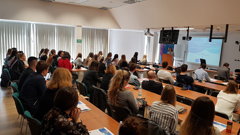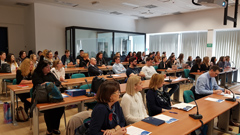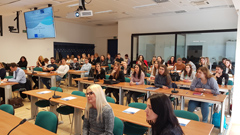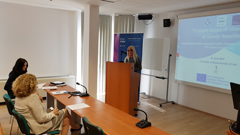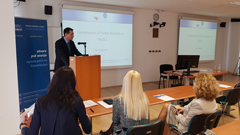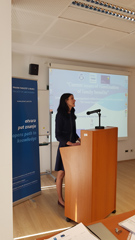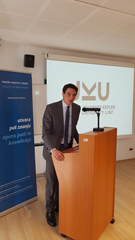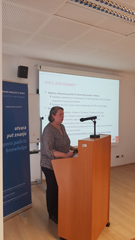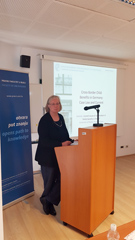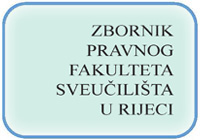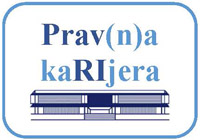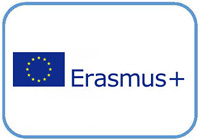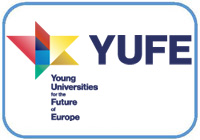International seminar „Current issues of coordination of family benefits“
The international seminar “Current issues of coordination of family benefits” took place at the Faculty of Law in Rijeka on 26 April 2019. The seminar was organised as an activity within the project Erasmus+ Jean Monnet Module “EU Social Security Law” (project no.: 574674-EPP-1-2016-1-HR-EPPJMO-MODULE).
Family benefits form an important part of the coordination of social security systems in the EU Member States. Although they may be very different, they are intended to meet family needs and are granted in connection with the family situation of a beneficiary. They form an important part of social security systems, and they can serve multiple purposes, such as protection from poverty, raising the quality of life or as measures of demographic policies. As such, they are strongly rooted in national traditions and linked to the standard and costs of living in a certain state. The EU social security coordination rules in this field are designed to enable all those moving within the Union to keep their entitlement to benefits, but they also lay down priority rules which prevent overlapping of family benefits accorded under the legislation of the competent state and under the legislation of the Member State of residence of family members. Many legal and practical issues surround the coordination of family benefits in the EU, especially lately. Long-standing debates in many EU countries have led to changes in legislation, and their compliance with EU law and the principle of equality is questionable.
This seminar has gathered leading experts and practitioners in the field of social security to present the latest developments in coordination of family benefits in Austria, Slovenia, Germany and Croatia. The migration flows among these countries are traditionally strong, and coordination is an inevitable issue. Many current questions associated with coordination of family benefits in these countries were addressed and discussed at the seminar.
The seminar started with a short introduction in the issues and the presentation of the Jean Monnet Module “EU Social Security Law”, financed within the Erasmus+ program of the European commission and implemented at the Faculty of Law in Rijeka in the period from 2016-2019. After this, the first presentation on the new challenges in the coordination of family benefits in the EU was held by Prof. Grega Strban from the Ljubljana Law Faculty. It was followed by the presentation on the current problems of indexation and export of family benefits from the Austrian perspective by Prof. Elias Felten from the Faculty of Law in Linz. Mag. Martina Thomasberger from Arbeitskammer Wien has proceeded to provide an excellent and detailed overview of the most important cases and problems arising in the Austrian practice on a daily basis. Dr. Eva Maria Hohnerlein from Max Planck-Institut für Sozialrecht und Sozialpolitik in Munich has presented the German experiences and case law developments associated with cross-border family benefits. The seminar was closed with the presentation on the Croatian family benefits by Asst. Prof. Adrijana Martinović.
We are very proud by the fact that the seminar was attended by 48 participants, among which many representatives from the competent bodies for coordination in Croatia and Slovenia, legal professionals, but also students at the last year of their legal studies in Rijeka. In a lively and constructive atmosphere, the participants have concluded that this subject deserves further and continued attention, as it represents a very important cross-border issue affecting daily lives of EU citizens and their families. Presentations from the seminar are available here (please request a password from This email address is being protected from spambots. You need JavaScript enabled to view it.).
